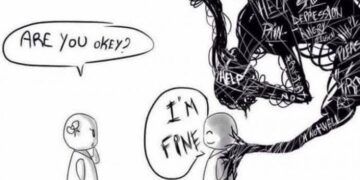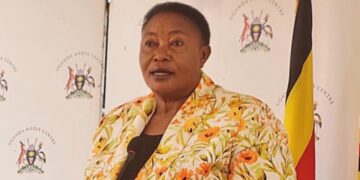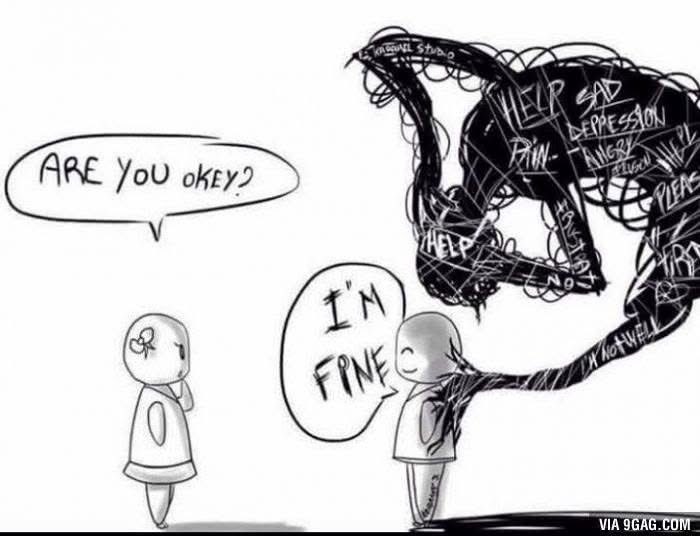OPINION
Every June, we mark Men’s Mental Health Awareness Month. In reality, the month often passes with little more than a whisper. There are no marches, no major social media campaigns, no national conversations just silence.
According to the World Health Organization (2018), close to 800,000 people die by suicide every year worldwide, and for each death, there are about 20 suicide attempts. Suicide remains one of the leading causes of death among men globally. Countless others silently battle depression, anxiety, trauma, addiction and burnout. Yet, society remains largely indifferent. While we have made great strides in destigmatizing mental health in general, we have failed to bring men into the conversation with the urgency and compassion they deserve.

In Uganda, the situation is especially concerning. A report by the Ministry of Health (2020) published in the Uganda Public Health Quarterly Epidemiological Bulletin indicates that Uganda has a high suicide rate of 18.67 percent, with men at higher risk than women. This highlights the urgent need to prioritize men’s mental health in our country.
Part of the answer lies in how we define masculinity. From an early age, boys are taught that being a man means being tough, unemotional, and self-reliant. “Real men don’t cry.” “Man up.” “Don’t be weak.” These phrases are burned into the cultural fabric, reinforcing the message that vulnerability is a flaw and seeking help is a failure.
Many men grow up learning to bury their emotions, wear a mask of strength, and suffer in silence. They go through life with wounds no one sees and pain no one talks about. By the time they reach adulthood, asking for help feels foreign if not shameful.
This silence does not just harm individual men, it also deeply affects families, workplaces, and communities. Men who are struggling mentally are more likely to withdraw, lash out, abuse substances or fall into cycles of violence and self-destruction. Critically, untreated mental health issues among men are often linked to gender-based violence (GBV). When men suppress trauma and emotional pain without support, some may express their struggles through aggression or abuse towards intimate partners and family members. This tragic connection between silent suffering and GBV underscores the urgent need to address men’s mental health not only to save lives but to protect families and communities from violence.
The media plays a significant role in shaping public awareness. Consider the extensive coverage given to awareness months like October for breast cancer and March for women’s rights yet Men’s Mental Health Month in June often receives minimal attention. Without strong amplification, awareness efforts lose their impact. When men’s mental health is consistently overlooked, whether intentionally or not, it sends a damaging message or that it does not matter.
 It matters for the father working multiple jobs under financial stress but afraid to show vulnerability. It matters for the teenage boy struggling with anxiety in a society that tells him to “toughen up.” It matters for the retired man facing isolation and depression in silence. And it matters for every man who has ever felt that speaking up would make him less of one.
It matters for the father working multiple jobs under financial stress but afraid to show vulnerability. It matters for the teenage boy struggling with anxiety in a society that tells him to “toughen up.” It matters for the retired man facing isolation and depression in silence. And it matters for every man who has ever felt that speaking up would make him less of one.
What we need is a cultural shift one that embraces emotional expression as strength, not weakness. We need to teach boys that it’s okay to cry, to feel, and to ask for help. We need workplaces that support mental well-being for all employees. We need campaigns that centre men’s stories and struggles. And we need to create safe spaces at home, in schools, online where men can talk without fear of ridicule or rejection. Raising awareness is only the beginning. Real change requires confronting the toxic norms that keep men silent and replacing them with empathy, honesty, and inclusion.
As June draws to a close, the silence around men’s mental health must not return. Awareness cannot be confined to a single month it requires ongoing commitment, conversation and action every day of the year. If we value the lives and well-being of men in our communities we must carry this message forward beyond June. Let this month be a starting point, not an endpoint.
By Caroline Kinkuhaire
Gender and Advocacy Officer
Youth For Green Communities(YGC)
Email: carolinekinkuhaire12@gmail.com
Tel : +256 784 364 001








































